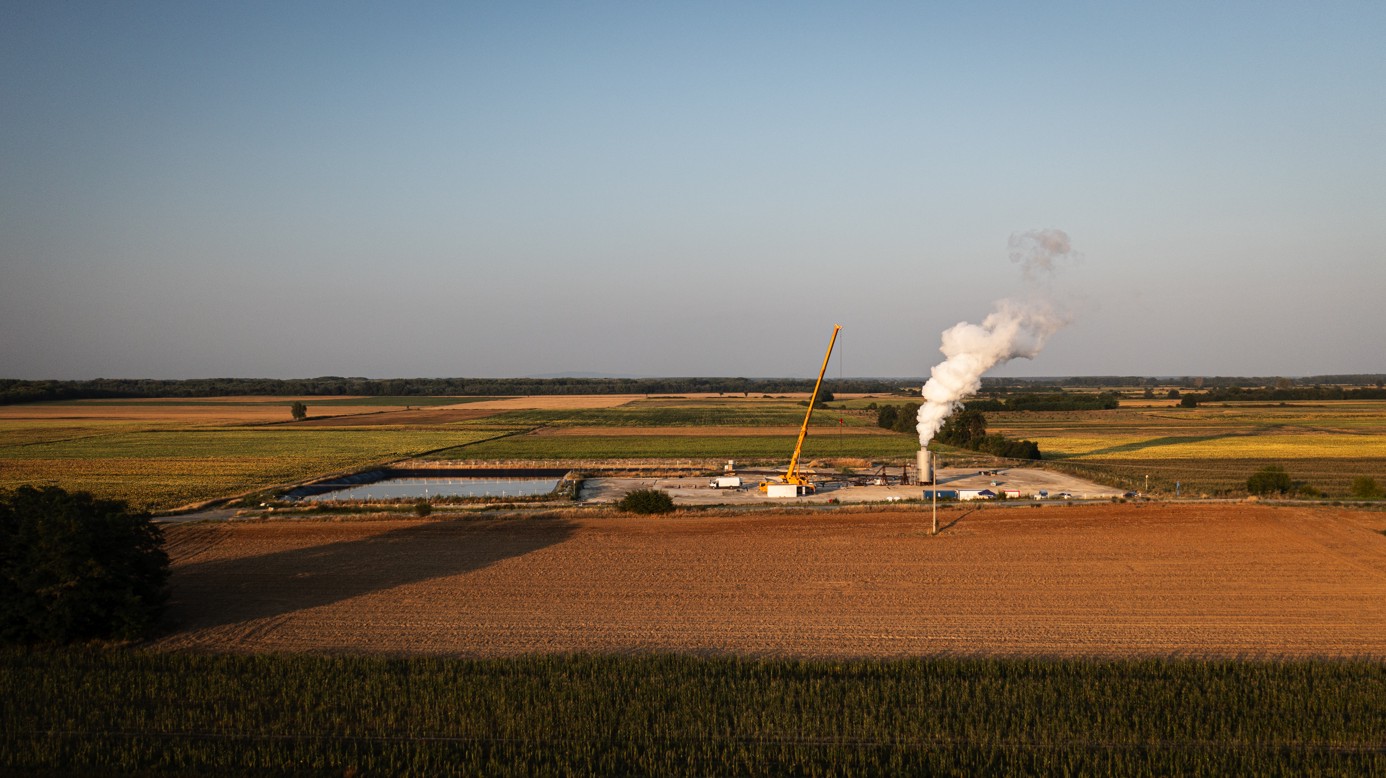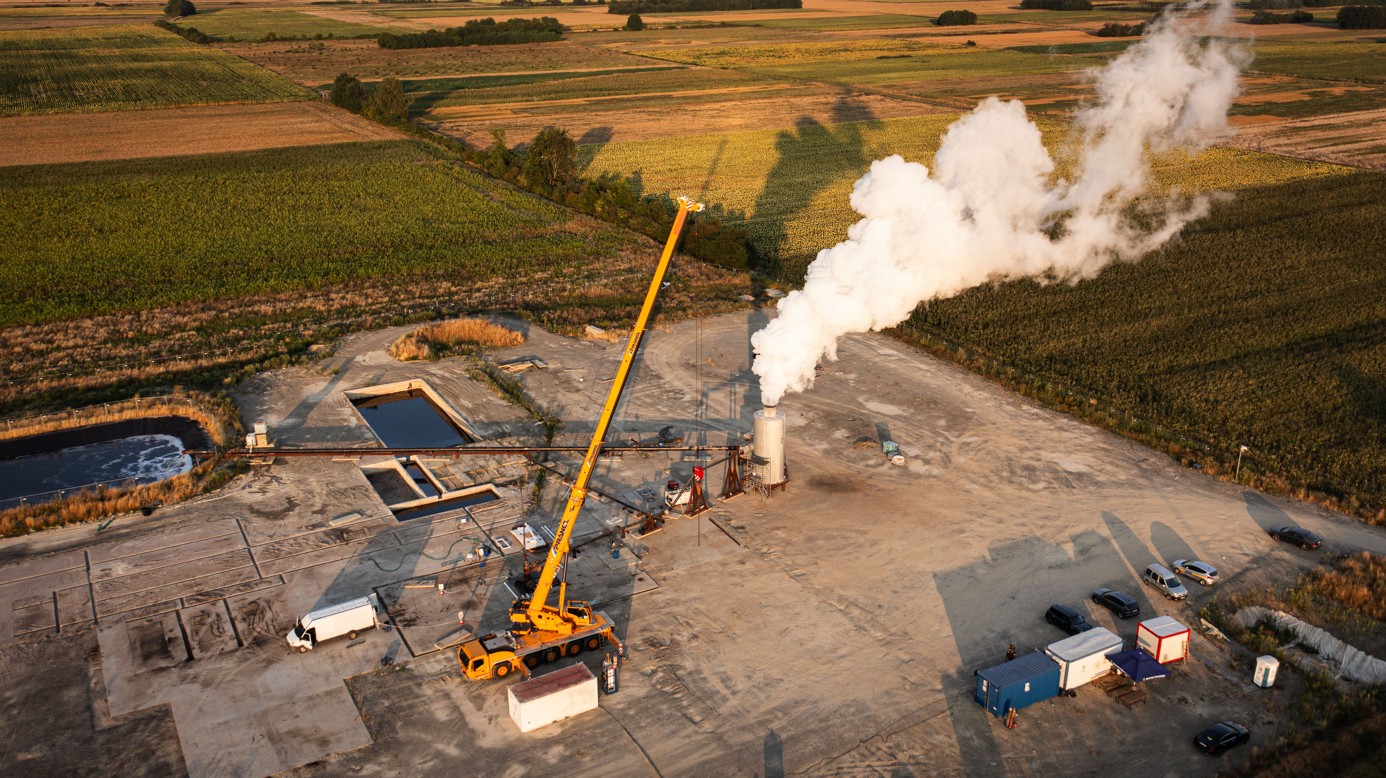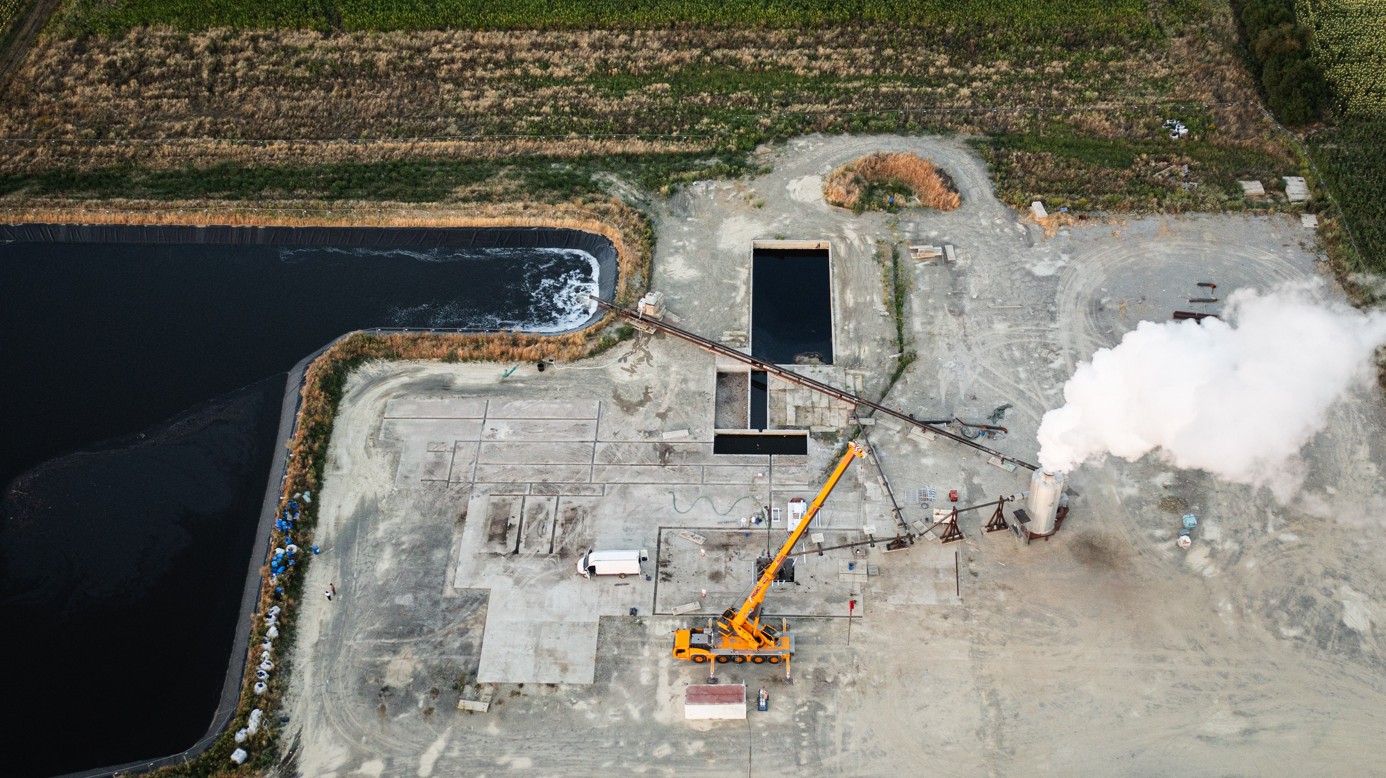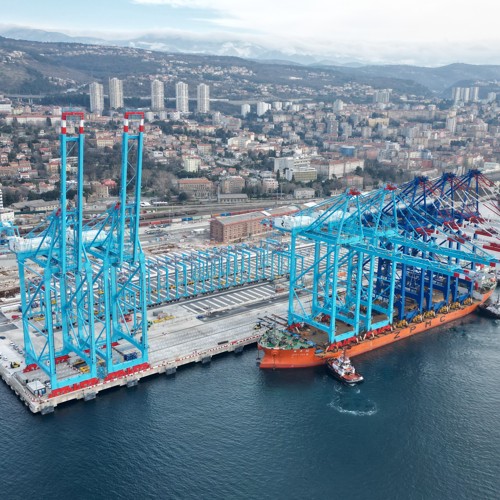ENNA successfully completes additional testing at GPP Zagocha well, recording even higher temperatures
Exploratory well drilling commences in Babina Greda
Date publishedAugust 19, 2025
Zagreb, 19 August 2025 - Additional production testing of the well at the site of the planned geothermal power plant GTE Zagocha in Čađavica near Slatina, developed by ENNA Geo, a member of the ENNA Group, has been successfully completed. Furthermore, so-called rigless testing was carried out from 8 to 13 August 2025 on the well Podravska Slatina GT-6beta (PSGT-6beta), said Boris Vidoš, Project Manager of GTE Zagocha.
The primary objective was to collect water samples from the geothermal reservoir at a depth of 4,582 metres and to measure additional production parameters essential for the development of the power plant project.
“Two downhole samples of geothermal water were collected under dynamic conditions, along with several surface samples of water and gas, which have been sent for detailed analysis to several internationally recognised geothermal laboratories (New Zealand, France, Turkey and Croatia). We are particularly pleased that the geothermal reservoir itself, only a few months after completion of the well, is showing higher measured temperature values both at reservoir level (well bottom) and at the surface. By measuring pressure and temperature conditions in the well, a maximum temperature of 211°C was recorded at the bottom of the PSGT-6beta well, while the geothermal water temperature at the surface reached 180°C,” said Vidoš.
He explained that all downhole and surface flow measurements, geochemical analyses of water, and gas analyses will provide a broader picture of the geothermal potential of the ‘Slatina 2’ geothermal water field, enabling the ENNA Geo team to begin concrete discussions with suppliers of the process equipment for the geothermal power plant.
Below, you can also watch a video showing how the additional testing was carried out at the Čađavica site.
The drilling of the well itself was completed in March this year, followed by initial production testing which confirmed the significant geothermal potential of the Slatina 2 field. The additional rigless testing, i.e. planned petroleum engineering operations, was successfully carried out in accordance with the work programme and timetable, Vidoš concluded.
Croatia has considerable geothermal potential, but currently not a single operational geothermal power plant. GTE Zagocha is the most advanced geothermal power plant project in Croatia to date, but the realisation of the plant crucially depends on the launch of a public tender for the allocation of a market premium. This is a support model used by other countries to encourage investment in geothermal power plants, given that these projects involve exceptionally high upfront costs, drilling-related technical and geological risks, and lack of bank financing at the exploration stage. For instance, Germany subsidises geothermal power plants over a 20-year period with a guaranteed price of €252 per MWh, while Italy offers a guaranteed price of €200 per MWh over 25 years.
The Zagocha project has had all the required documentation for tendering since November 2023, yet HROTE (the Croatian Energy Market Operator) has not issued a public call for the allocation of a market premium in the past three years, which has delayed the project’s implementation.

At the same time, geothermal power plants offer numerous advantages over other renewable energy sources. More than any other renewables, they benefit the local community by creating new jobs, while investors are also contractually obliged to return a share of revenues to the municipality, county and state. They occupy very little land area; for example, a geothermal power plant of the same installed capacity requires ten times less space than a solar power plant. Moreover, geothermal power plants do not pollute the environment and produce no waste requiring disposal. They also provide significant benefits for the stability of the power system, as they generate energy almost continuously (day and night), their output does not depend on weather conditions (sun, wind), and they offer great flexibility by being able to ramp production up and down from 100% to 30% of capacity, thus helping to balance the grid.
In addition to Zagocha, with a planned capacity of 20 MWe, ENNA Geo, through the project company Geo Power Babina Greda, is also developing a geothermal power plant project in Babina Greda with an installed capacity of 15 MWe. On the geothermal exploration field Babina Greda 2, drilling of the exploratory well Babina Greda GT-1 (BaGGT-1) commenced on Monday, 18 August 2025. The plan is to drill the deep geothermal well Babina Greda 1 and to conduct production testing over the next 110 days, with an expected surface flow of 110 litres per second of geothermal water at a temperature of 170°C.

Through its investments in the Zagocha and Babina Greda geothermal power plant projects, the ENNA Group is positioning itself as a leader in the renewable energy sector in Croatia. These projects not only contribute to the green transition and to reducing dependence on fossil fuels, but are also of strategic importance, as they enable domestic electricity production from a constantly available, indigenous resource.
News
#ProjectsMore news >
ENNA successfully completes additional testing at GPP Zagocha well, recording even higher temperatures

Ivana Meašić presented ENNA Group’s geothermal projects on Bloomberg Adria

Great success for the ENNA Geo team – confirmed geothermal potential of the Slatina 2 exploitation field!

The last two STS cranes have arrived at the Rijeka Gateway terminal

Geo power Zagocha has started drilling for a future geothermal power plant near Slatina